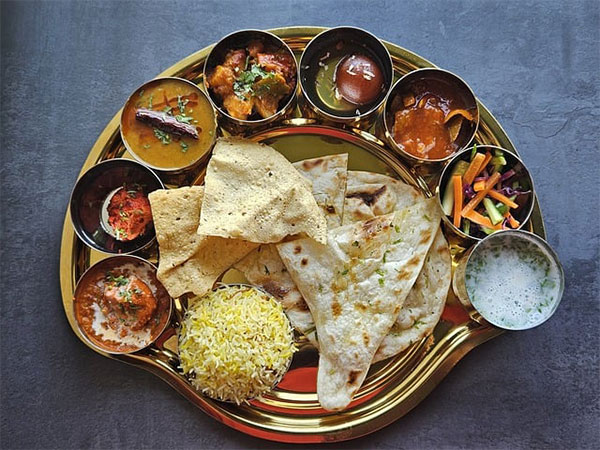New Delhi [India], July 5 (ANI): The cost of preparing a home-cooked vegetarian thali surged by 10 per cent in June compared to the same period last year, while the cost of a non-vegetarian thali decreased by 4 per cent, according to the latest estimates from CRISIL report.
This divergence in food costs has been largely influenced by significant changes in the prices of key ingredients.
The increase in the cost of a vegetarian thali can be attributed to a sharp rise in the prices of essential vegetables–tomato, onion, and potato (TOP).
On-year, tomato prices shot up by 30 per cent, onion prices soared by 46 per cent, and potato prices increased by a staggering 59 per cent. This surge in vegetable prices has largely been due to several adverse factors impacting supply.
The summer crop faced a major setback due to high temperatures in key growing regions like Karnataka and Andhra Pradesh. This led to a virus infestation and, subsequently, a 35 per cent reduction in tomato arrivals.
The market saw lower onion arrivals as a result of a significant drop in rabi acreage, leading to a supply shortage and a spike in prices.
Unseasonal rainfall in March adversely affected the yield of the potato crop, contributing to the price surge.
Furthermore, other staple ingredients for the vegetarian thali also witnessed price hikes. The cost of rice, which makes up about 13 per cent of the veg thali, rose by 13 per cent due to a dip in acreage and subdued arrivals.
Pulses, accounting for 9 per cent of the thali’s cost, saw a 22 per cent increase in price, attributed to a dry spell during key kharif months affecting their production.
In contrast, the cost of a non-vegetarian thali decreased primarily due to a notable decline in broiler prices, which account for approximately 50 per cent of the non-veg thali cost. Broiler prices fell by around 14 per cent on a year-on-year basis,
Despite the annual trends, both vegetarian and non-vegetarian thalis saw a rise in costs on a month-on-month basis. The cost of the veg thali increased by 6 per cent from May to June, driven by a 9 per cent, 15 per cent, and 29 per cent rise in the prices of potato, onion, and tomato, respectively. These increases were due to continued low arrivals of these vegetables.
Similarly, the cost of the non-veg thali rose by 4 per cent over the same period. While elevated vegetable prices contributed to this increase, the rise was mitigated by a modest 1 per cent increase in broiler costs.
This trend of rising costs for the vegetarian thali has been observed since May, when the cost of a home-cooked vegetarian meal increased by 9 per cent compared to the previous year, according to CRISIL report.
The key drivers for this increase were the soaring prices of tomatoes, potatoes, and onions, which have been consistently climbing since the beginning of the fiscal year.
The Ministry of Agriculture and Farmers Welfare has also noted a significant reduction in rabi crops and a decline in potato arrivals due to crop damage and disease, particularly in West Bengal.
This reduction in supply has pushed prices upwards. The Ministry anticipates a considerable drop in onion production this year, projecting a decline from 302.08 lakh tonnes last year to 242.12 lakh tonnes in 2023-24, adding to concerns about future price increases for food items.
Conversely, tomato production is expected to see a slight increase of about 3.98 per cent, reaching approximately 212.38 lakh tonnes.
The contrasting trends in the cost of non-veg thalis have been largely supported by an estimated 16 per cent drop in broiler prices, which played a crucial role in keeping the costs down despite high base effects from the previous fiscal year. (ANI)
Disclaimer: This story is auto-generated from a syndicated feed of ANI; only the image & headline may have been reworked by News Services Division of World News Network Inc Ltd and Palghar News and Pune News and World News
HINDI, MARATHI, GUJARATI, TAMIL, TELUGU, BENGALI, KANNADA, ORIYA, PUNJABI, URDU, MALAYALAM
For more details and packages
















